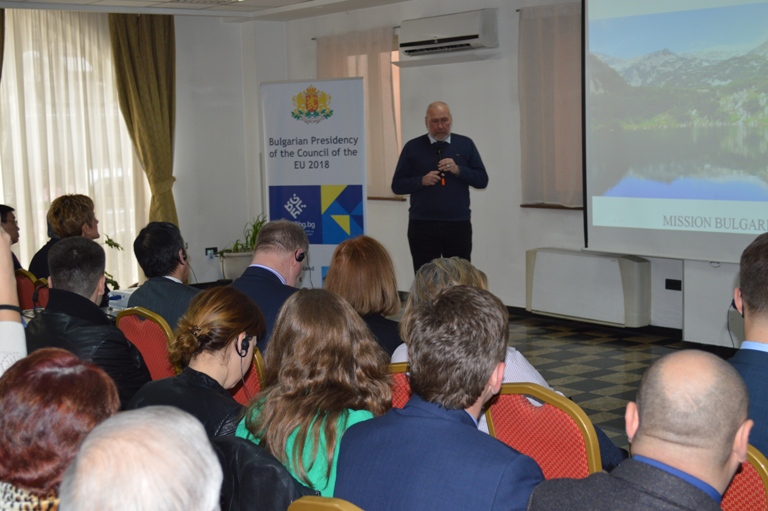On 23-rd of March the Bulgarian Embassy in Yerevan hosted an event in the Best Western Congress Hotel featuring a presentation on the Bulgarian history and cultural treasures delivered by two of the most prominent Bulgarian scholars – Prof. Nikolay Ovcharov and Prof. Plamen Pavlov. The event was held under the cultural program of the Bulgarian Presidency of the Council of the European Union in Yerevan. The event was open by H.E. Maria Pavlova Tzotzorkova, Ambassador Extraordinary and Plenipotentiary of Bulgaria in Armenia. She expressed her strong satisfaction that the first event of the EU Presidency cultural program in Yerevan is devoted to historical and cultural achievement of her country thus providing the opportunity for the diplomats in Yerevan and the Armenian public at large to learn more about Bulgaria and its rich culture. That was also considered an excellent occasion to promote the cultural interaction between the two countries. According to her, there is something symbolic in choosing this topic since the Bulgarian people are well-known for their devotion to literacy, education and strong feeling of preserving their cultural identity over the centuries.
In their lecture Prof. Ovcharov and Prof. Pavlov gave an overview of the historical past of Bulgaria in prehistoric, ancient and medieval times and presented the most exquisite and famous artifacts and treasures discovered in the Bulgarian lands. The guests enjoyed, among other things, the remarkable treasures of Panagyurishte and Valchitran as well as the photos of the ancient city of Perperikon, discovered and researched by Prof. Ovcharov, in the Eastern Rhodopi mountain of Bulgaria. The two scholars highlighted the relation existing between the Armenian and Bulgarian history providing evidence of the close political and cultural ties and mutual influence between the two nations. They expressed their admiration of the cultural and religious monuments they had visited on their tour in Armenia and shared the view that in Armenia, like in Bulgaria there is a serious potential for development of cultural tourism.
Following the presentation, the two professors responded to questions and engaged in dialogue with the participants on the subject of the lecture and how to further accelerate the cultural interaction between Bulgaria and Armenia.
The lecture was attended by ambassadors and diplomats, representatives of the Armenian state administration, academia, and media, students, former participants in the Bulgarian student fellowship program and many Armenians with affiliation to Bulgaria.
Embassy of Bulgaria



















































